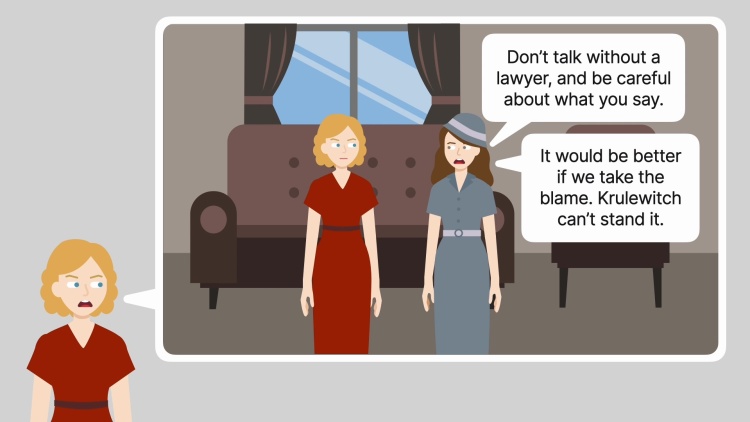Krulewitch v. United States
United States Supreme Court
336 U.S. 440 (1949)
- Written by Craig Conway, LLM
Facts
Krulewitch (defendant) and another person were charged with conspiring to violate and violating the Mann Act, a statute that prohibited interstate transportation for the purposes of prostitution. At trial, the government sought to admit an alleged coconspirator’s statement that implicated Krulewitch in the charged crimes. Although the conspiracy’s main objective—i.e., transportation for prostitution—had been completed by the time of the coconspirator’s statement, the government argued that the conspiracy had continued with a new objective—concealment of the crime—even after the transportation was completed. The continued existence of the conspiracy was important because a certain doctrine allowed any statements made by any conspirator during the conspiracy to be admissible at trial against all other coconspirators, even though such statements would ordinarily be excluded as hearsay. The trial court admitted the coconspirator’s statement, and Krulewitch was convicted. The appellate court affirmed, agreeing with the government’s position that the coconspirator’s statement had been made in furtherance of the continuing conspiracy to conceal the alleged crime. The United States Supreme Court granted certiorari to review.
Rule of Law
Issue
Holding and Reasoning (Black, J.)
Concurrence (Jackson, J.)
What to do next…
Here's why 907,000 law students have relied on our case briefs:
- Written by law professors and practitioners, not other law students. 47,100 briefs, keyed to 996 casebooks. Top-notch customer support.
- The right amount of information, includes the facts, issues, rule of law, holding and reasoning, and any concurrences and dissents.
- Access in your classes, works on your mobile and tablet. Massive library of related video lessons and high quality multiple-choice questions.
- Easy to use, uniform format for every case brief. Written in plain English, not in legalese. Our briefs summarize and simplify; they don’t just repeat the court’s language.







